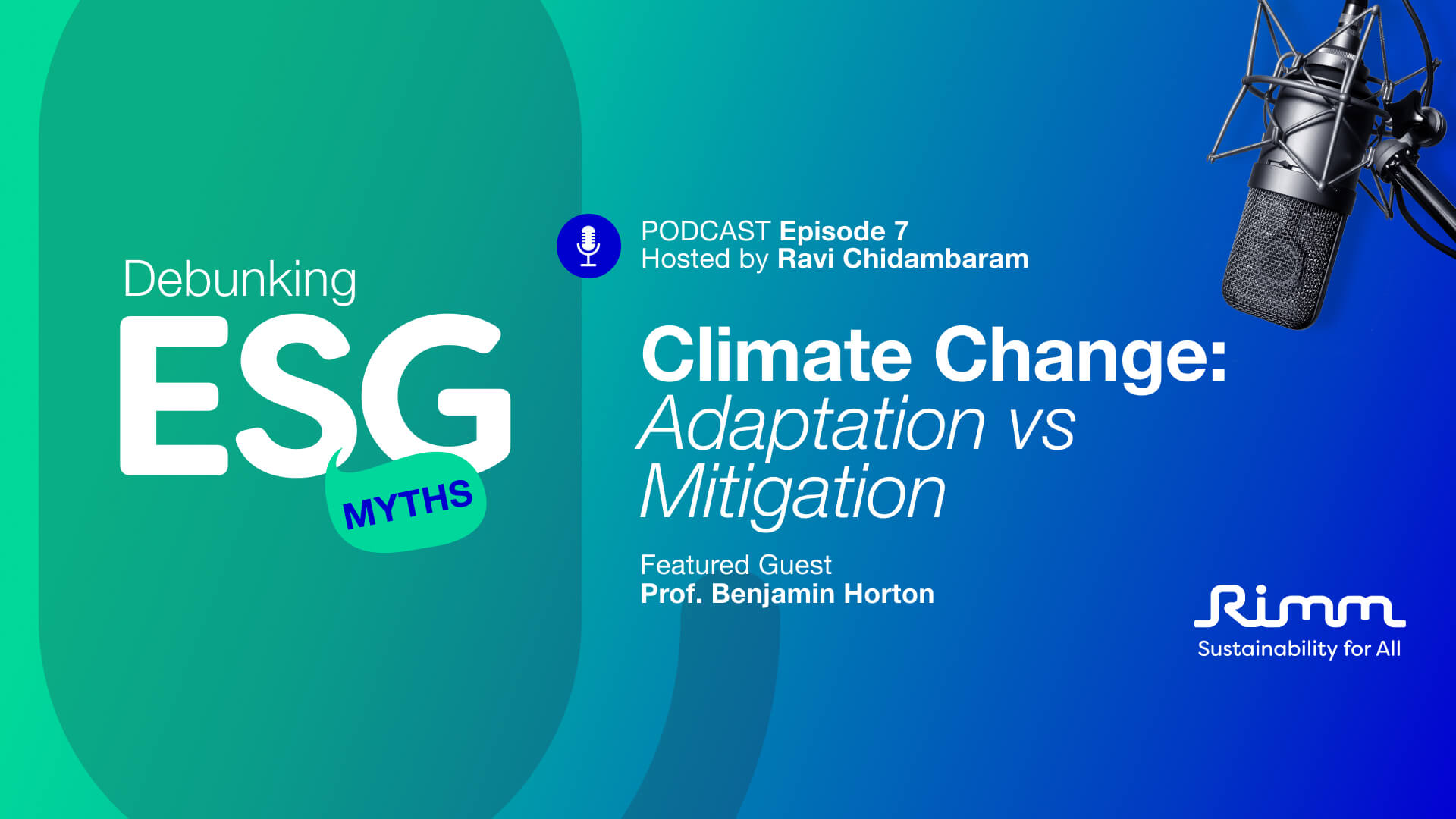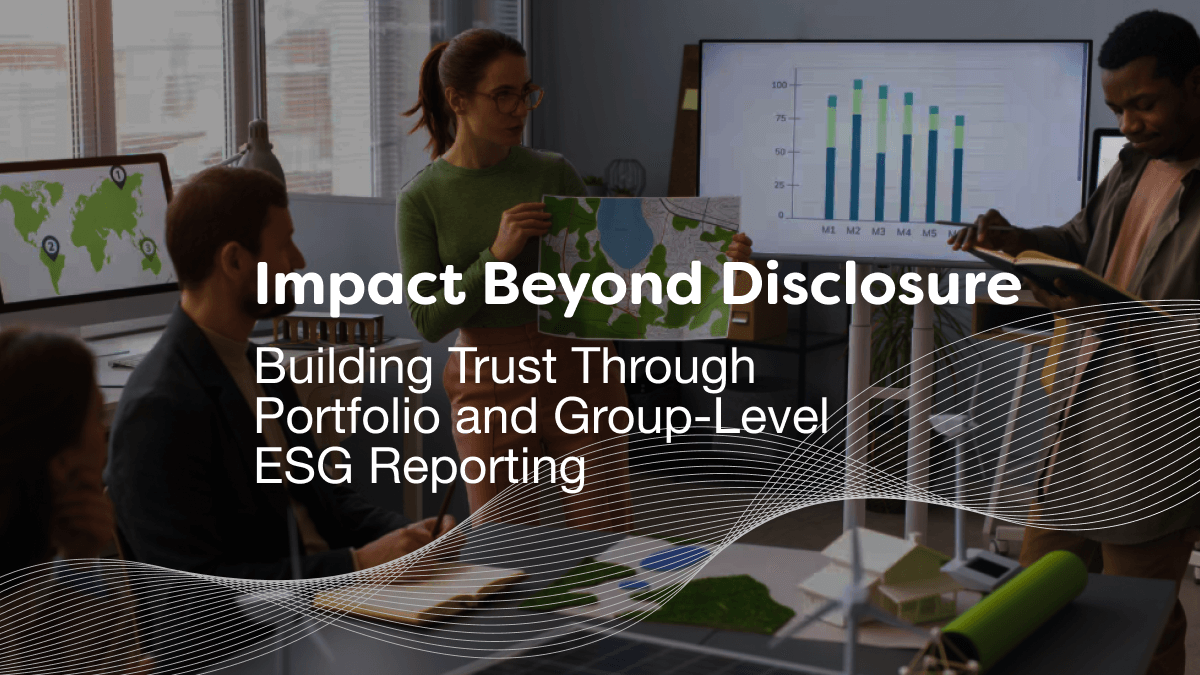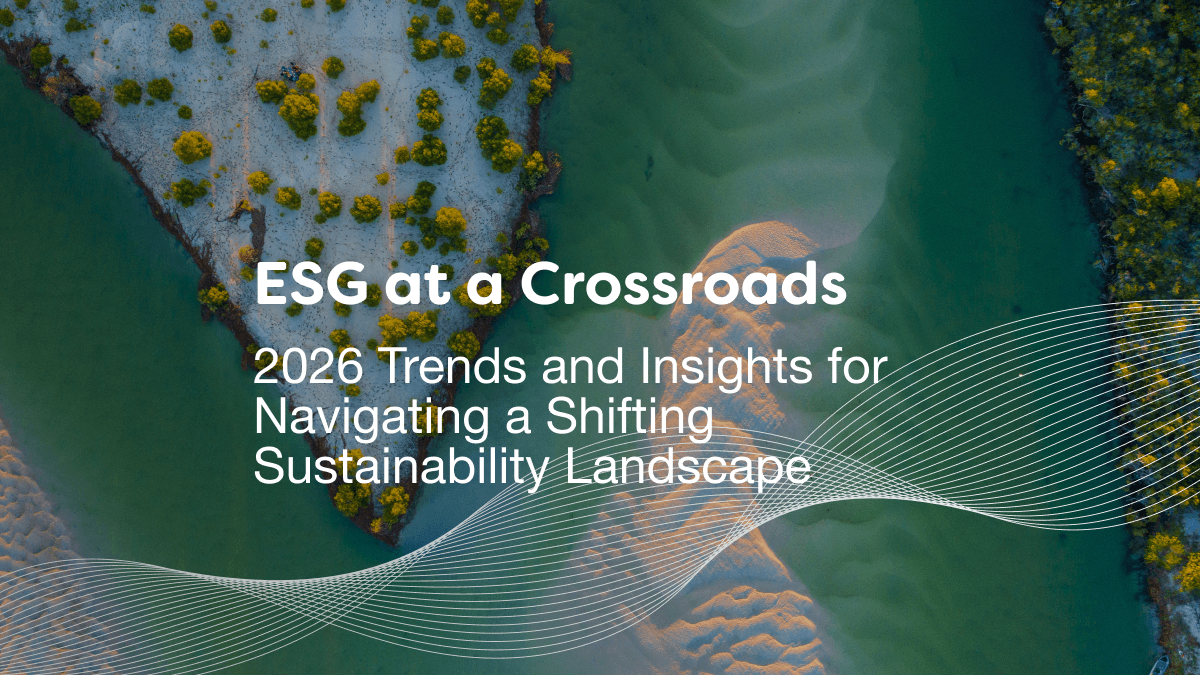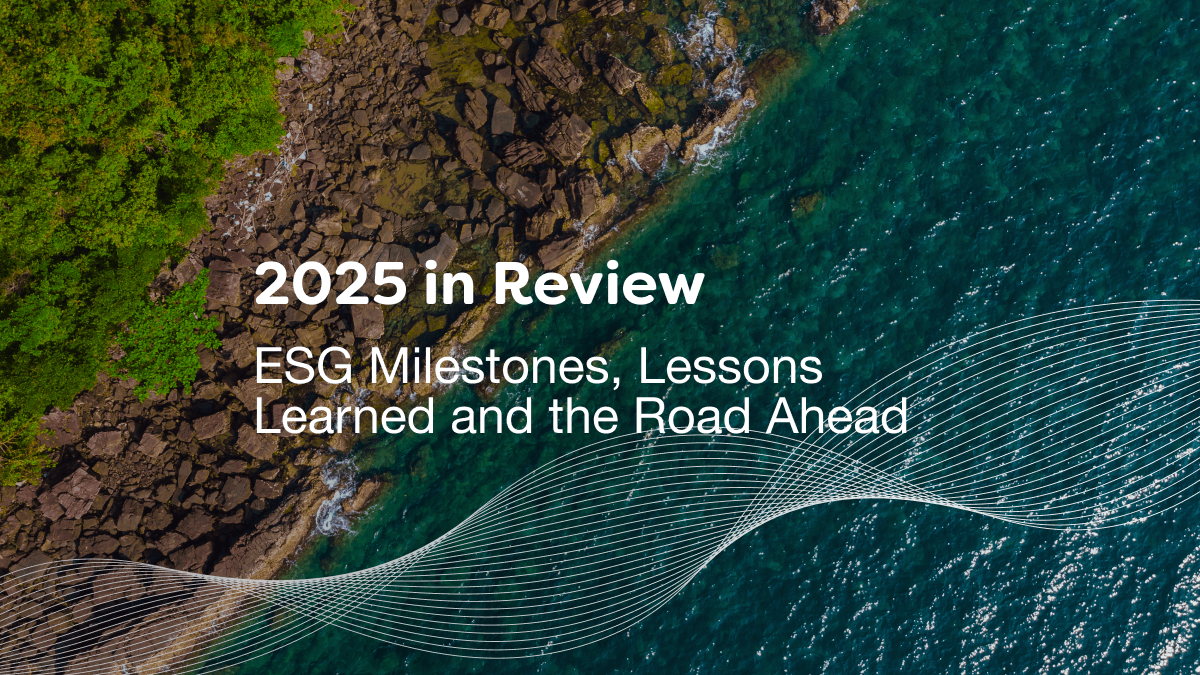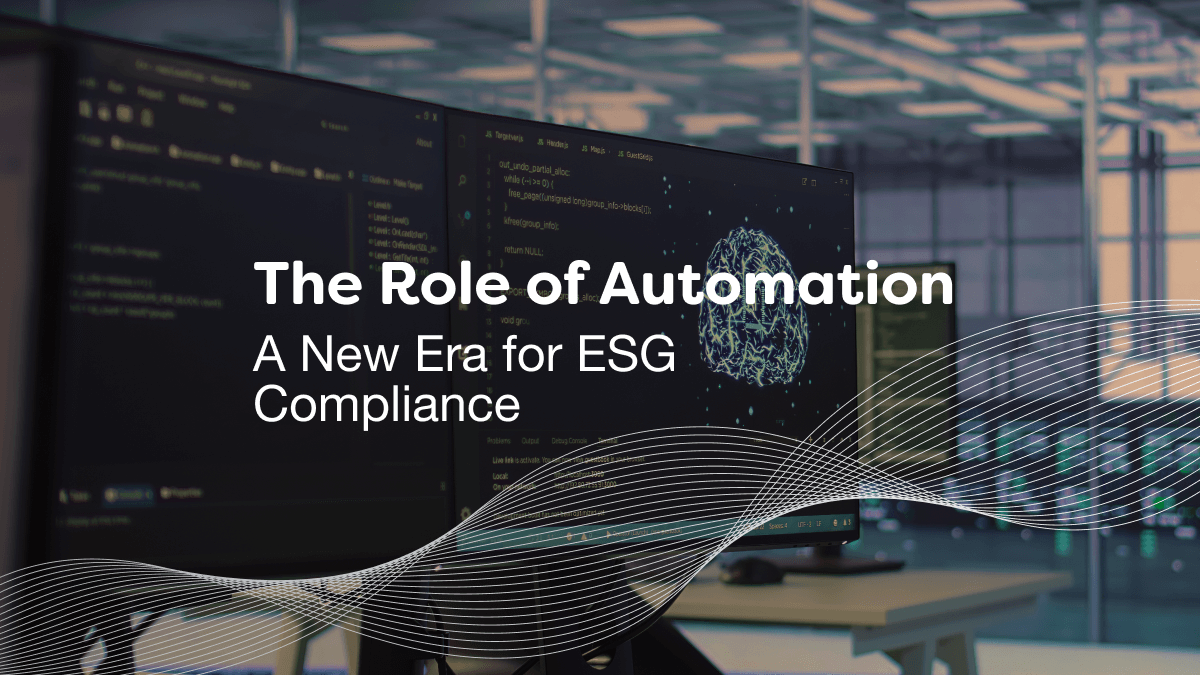As 2024 draws to a close, it is useful to reflect on the market dynamics that defined the year, and consider how they could shape the future. In the past 12 months the ESG landscape has continued to evolve, with companies being held increasingly accountable for their ESG impact due to pressure from a wide variety of stakeholders. Although the market for ESG services and technologies continues to grow, it can be complex for companies to navigate. These and other trends are reshaping how companies operate, how stakeholders engage and how the world evolves towards a more sustainable future. In this blog, we explore some of these defining trends from the year and their potential impact going forward.
Enhanced ESG Disclosure Requirements: Building Trust Through Transparency
In 2024, enhanced ESG disclosure mandates demanded that companies go beyond surface-level reporting. With regulators now requiring more transparent and detailed data, international frameworks like the International Sustainability Standards Board (ISSB) and the Corporate Sustainability Reporting Directive (CSRD) have become central, establishing rigorous, and where possible, consistent ESG practices. For businesses, these enhanced disclosures mean more than compliance. They establish resilience and trust with stakeholders. A recent study by PwC revealed that over 75% of investors view ESG disclosures as essential in decision-making, underscoring the rising demand for transparency and accountability.
Climate Tech and AI Innovation: Streamlining Sustainability with Automation
2024 saw increased adoption of climate technology, transforming how companies manage their sustainability goals. With AI-powered solutions now covering many of the major tasks relating to the collection, aggregation, analysis and reporting of ESG data, businesses can measure, manage and reduce their environmental impact like never before. Technology has become an indispensable tool for advancing sustainability, and will increasingly serve as a competitive advantage. Companies that leverage AI and machine learning gain insights that allow them to drive meaningful, rapid change.
Green Finance and Investment: Sustainability Driving Capital Flow
Green finance took center stage in 2024, as more investors aligned their portfolios with ESG principles. Green bonds, sustainable loans, and impact investing are now mainstream, providing companies with more capital to power their sustainability efforts. For many businesses, tapping into green finance has not only opened doors to dedicated funding but also established a means to pursue large-scale projects in areas such as renewable energy and carbon offsetting. Companies that adopt green financing can not only fund sustainability initiatives but also improve their standing with key stakeholders.
Supply Chain Resilience and Sustainability: Preparing for Tomorrow’s Challenges
The events of 2024 emphasized the importance of building supply chains that are not only sustainable but resilient. With climate risks and global disruptions rising, companies have been compelled to make their supply chains more adaptable, transparent and responsible. This focus on sustainable supply chains reflects a deeper awareness of the interconnectedness of environmental stability and business continuity. Prioritizing supply chain sustainability helps organizations safeguard against unpredictable disruptions while reducing emissions and promoting ethical practices.
Social Impact & Community Engagement: Elevating the “S” in ESG
While environmental goals have long been at the forefront of ESG strategies, the last couple of years have seen a greater focus on social impact. Companies are investing in community engagement, diversity, equity and inclusion (DEI) programs, and fair labor practices to create value beyond profit. These efforts build trust and loyalty, showing stakeholders that businesses care about the people and communities they affect.
What does this mean for the future? Social impact initiatives are key to fostering brand loyalty and building lasting relationships with communities. Companies that lead with social responsibility enhance their brand reputation while driving positive societal change.
Circular Economy Principles: Redefining Waste Management
2024 marked a pivotal year for the circular economy, with companies embracing sustainable design, recycling, and waste reduction to extend the lifecycle of materials. Moving away from a “take-make-dispose” model, businesses are rethinking how they produce and distribute goods, aiming to minimize waste and retain resources within the economy for as long as possible. The adoption of circular economy principles will drive both environmental and economic benefits, reducing resource consumption and operational costs.

Stepping into 2025: The Path Forward
These trends are more than short-term shifts; they’re defining the sustainable future we’re moving towards. Businesses that adapt to these trends aren’t just keeping up—they’re leading. As the market evolves to prioritize transparency, accountability, and resilience, companies with a clear sustainability vision will drive meaningful progress in 2025 and beyond.
How is your organization preparing for the sustainability challenges ahead? Reach out to us today and discover how Rimm can support you to achieve your ESG goals in 2025!

